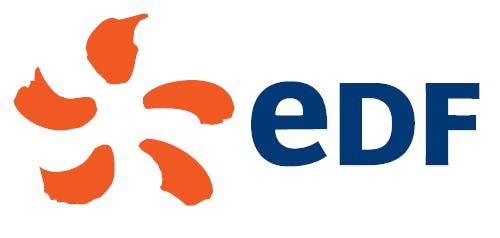3.5.4 Transformation drivers
3.5.4.1 Integration of commitments into the Group’s strategic process and project screening
| Screening letters and performance reviews |
Commitments are implemented and set out in screening letters specifying the contribution of each of the Group’s entities and subsidiaries to achieving the common objective. The system for monitoring these commitments is integrated into the Group’s strategic planning loop. Annual performance reviews allow entities and subsidiaries to monitor and control their actual performance. |
|---|---|
| Investments | Projects and investments subject to the approval of the Group’s various Commitments Committees, and particularly those of the Group Executive Committee (1) (CECEG) and the International Business Development Committee (CBDI) that are the subject of an opinion of the Sustainable Development Department based on a screening grid that translates the issues of the Group’s CSR commitments into operational terms (2). Where necessary, the Sustainable Development Department organises due diligence investigations specific to these issues. |
3.5.4.2 Environmental management system (EMS)
In order to implement the environmental goals and related actions based on its CSR commitments and policy, the EDF group has set up a Group-wide environmental management mechanism using an environmental management system (EMS). This management system is based on EDF’s governance bodies (see chapter 4 “Corporate governance” and section 3.5.2 “CSR governance bodies”), which define the environmental guidelines and performance to be achieved, in line with the expectations of external and internal stakeholders.
In accordance with the requirements of the CSR policy, each of the Group’s entities (3) has put in place an environmental management approach adapted to its own challenges, defining its organisation and the various levels of responsibility and authority associated with it in order to meet its environmental commitments and control its risks by making appropriate resources (human and financial) available.
The EMS is carried out via Group and business processes that allow for certifying to stakeholders that the Group:
- controls environmental risks and ensures that the EDF group complies with regulations and its commitments: each entity draws up and implements an environmental programme or action plan that takes into account the Group’s commitments concerning it, its significant environmental aspects, and its regulatory obligations, considering its risks and opportunities;
- improving the efficiency of its organisations in a way that is appropriate to the issues at stake: each entity is responsible for its own internal control, internal and external audits of its EMS, and interfaces with the Group EMS;
- mandatory non-financial reporting of the environmental activities of the entities: each entity collects and communicates the required environmental information to the Sustainable Development Department.
The Sustainable Development Department is responsible for the overall coordination of the Group’s EMS and the necessary interfaces with EDF and its subsidiaries through the operational coordination of environmental management, which involves the participation of each entity with significant environmental impacts at the Group level.

CSR Strategy Committee
SDC Group Sustainable Development Committee
Operational Animation
EDF SA Environment Management Board (Production Engineering, Sales, Island Electrical System Department, Purchasing, Services, HRD, R&D) DDD Coordination
Group companies Governance bodies* (EDF Production Electrique Insulaire, EDF Renouvelables, Dalkia, Framatome, EDF UK, Edison, Luminus, EDF Trading, Enedis, etc. DDD animation
Animation and Thematic Groups (biodiversity, waste & circular economy, soil & groundwater, training, regulatory watch, carbon trajectory)
CSR Working Group (partnerships, Group environmental footprint, carbon trajectory)
Implementation of the CSR policy, internal control and reporting
SME Group annual management review
Strategic Foresight
Stakeholder Council
Group companies in France Agence DD Coordination DDD
EDF SA & Group companies Working groups (biodiversity, climate change, carbon offsetting, water, etc.)
SD monitoring and lobbying support networks
* Environment managing boards or equivalent
This EMS system is ISO 14001 (2015 version) certified by the external certification expert AFNOR. All industrial sites are covered by an EMS, and 87% of them are certified.
In 2021, the results of the certification audits conducted by AFNOR highlight the quality of the leadership, strategies, and policies built in alignment with regional issues and the needs and expectations of stakeholders. The auditors note the Group’s increased ambitions, in particular with regard to issues related to CO2 and biodiversity, and note the progress made in limiting the environmental impacts of its businesses.
(1) This concerns new projects involving investments of more than €50 million, entailing a significant impact on regions and the environment. The Group plans to lower this investment threshold to €30 million by 2030.
(2) See the high-stake non-financial issues and the materiality matrix in the introduction to chapter 3.
(3) Companies with industrial, operational (installation, operation, maintenance), engineering, distribution and marketing activities relating to goods and services.
